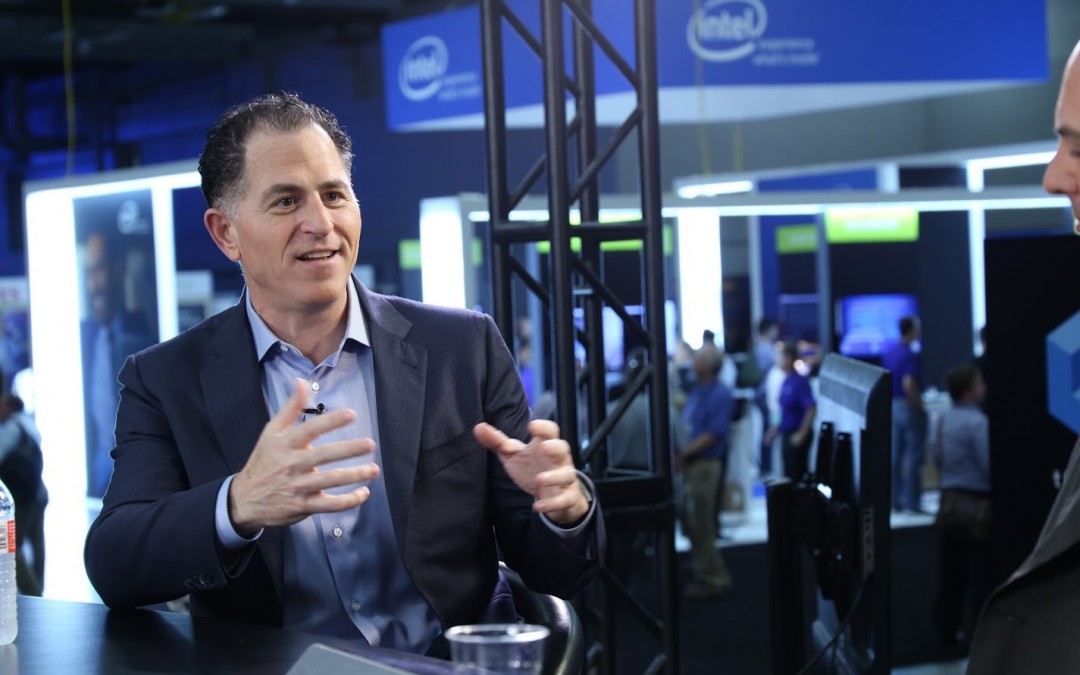 INFRA
INFRA
 INFRA
INFRA
 INFRA
INFRA
Reports surfaced last week that Dell Technologies Inc. might become a publicly traded company once again, allowing it to buy up the remaining shares of VMware Inc. it doesn’t hold. Now, it appears that Dell might be considering something of a reverse of that move.
Rather than buying VMWare, Dell may instead sell itself to the smaller company in a massive reverse-merger deal, CNBC reported today.
Last week, sources familiar with the matter said that Dell is looking for “strategic options” to pay off the $50 billion in debt it accrued when it bought out its shareholders to become a private company less than five years ago. The company also dropped a hefty $67 billion in 2016 to buy EMC Corp. in the biggest-ever takeover in the tech industry, which allowed Dell to position itself as a major player in the enterprise.
Dell is currently paying $2 billion in annual interest alone on its debts, which explains why the company is considering a number of options to pay them off. Going public could certainly give Dell an influx of cash, while selling to VMware would give Dell a shortcut back to Wall Street. VMware is already a publicly traded company itself, which means that Dell would be able to skip the process of going through its own initial public offering again.
According to CNBC, sources said VMware would issue shares to Dell Chief Executive Michael Dell (pictured) and Silver Lake, which are the private owners of Dell. The company’s owners could then sell their shares to profit from their investment in Dell.
If Dell’s sale to VMware actually happens, it could be the largest deal in the history of the tech industry. But the sale is only one of several options Dell could take, and the Texas-based tech giant could still decide to go the traditional IPO route.
“First off, all this is rumor and speculation at this point. We don’t even know if this is real or not,” said Patrick Moorhead, president and principal analyst at Moor Insights & Strategy.
“I believe the company is likely floating a trial balloon to see what the response is,” Moorhead added. “What is odd is why the company would be doing this now. Does an investor want to pull money out? Is it cheaper financing in the public equity markets? With Dell Technologies owning the vast majority VMWare, I believe the mothership wants to retire some debt, and with the run-up of VMWare value, this all makes sense.”
Still, others think such a deal is unlikely. Laz Vekiarides, co-founder and chief technology officer for ClearSky Data Inc. and a former executive director of software engineering at Dell, noted that reverse mergers such as this are usually undertake to avoid the public scrutiny of an IPO, but this deal would be anything but low-profile. Moreover, VMware shareholders might be unhappy with owning a hardware company such as Dell when they bought into a software company.
Indeed, the report dealt a serious blow to VMware’s shares today. VMware’s share values have plummeted by more than 12 percent so far, completely reversing the spike they saw after last week’s rumors that Dell might instead buy VMware’s remaining shares.
Support our mission to keep content open and free by engaging with theCUBE community. Join theCUBE’s Alumni Trust Network, where technology leaders connect, share intelligence and create opportunities.
Founded by tech visionaries John Furrier and Dave Vellante, SiliconANGLE Media has built a dynamic ecosystem of industry-leading digital media brands that reach 15+ million elite tech professionals. Our new proprietary theCUBE AI Video Cloud is breaking ground in audience interaction, leveraging theCUBEai.com neural network to help technology companies make data-driven decisions and stay at the forefront of industry conversations.